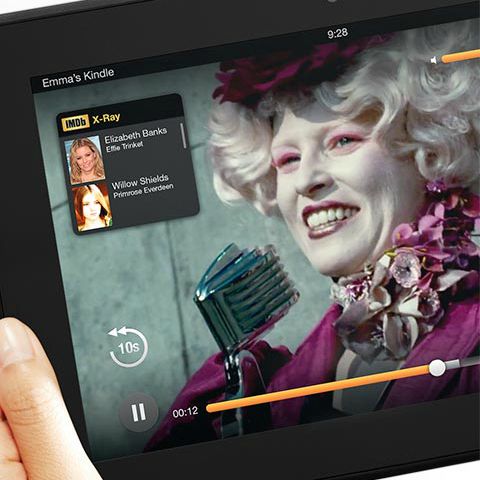
Kindle Fire HD is bad for Android, worse for iPad
Google is in a tough spot. Apple suddenly looks like an ally now that Amazon has unveiled Kindle Fire HD. Both companies stand to lose big time should the tablet achieve any meaningful sales success. Google Play doesn't offer strong enough ecosystem to battle with either iPad or Kindle Fire, but Amazon's tablet is more likely to scorch Android's earth. Amazon's vertical integration -- store, software and services -- is tight, as good as Apple's and in many respects superior. No matter which wins, Android loses.
Here's the problem: Only Amazon has done any meaningful Android customization on tablets, creating a curated experience similar to Apple's. Like iOS, Amazon Android is tightly vertically and horizontally integrated with siloed services. Kindle Fire is designed to mainly work within the Amazon content/retail sphere and little outside it. Amazon runs its own stores -- everything from apps to movies -- while shunning Google Play. Meanwhile, Kindle Fire supports the custom Silk browser rather than the stock Android one or Chrome. Amazon Android is a competing platform/ecosystem within the larger, more open one Google champions. (The original Kindle Fire is customized Gingerbread and new HD models customized Ice Cream Sandwich.)
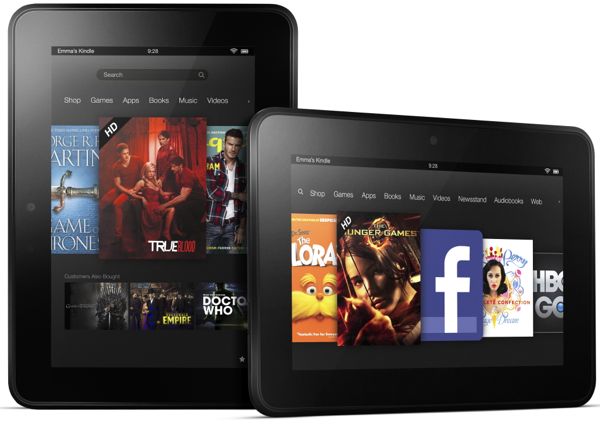
Amazon debuts new Kindle Fires, just don't call them gadgets
Amazon on Thursday unveiled four new Android tablets in the Kindle Fire family: two models with a 7-inch screen, and two with an 8.9-inch screen.
Irrespective of how many Kindle Fires Amazon actually sold, it's hard to argue that the retailer has done anything wrong. It built a content ecosystem first, and then delivered the hardware with which to consume that content. The icing on the cake was that the device was one of the cheapest brand-name tablets on the market.
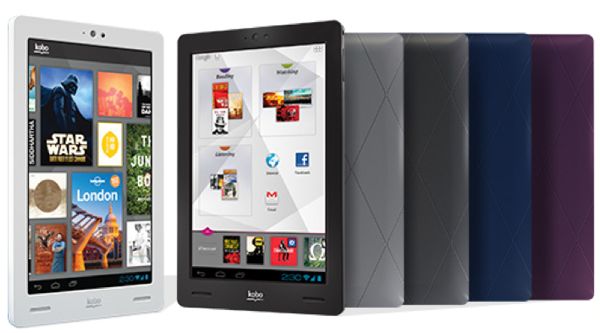
Kobo, Canada's answer to Kindle, debuts latest Android tablet ahead of Amazon
Just hours ahead of Amazon's debut of a new Kindle tablet on Thursday, Kobo, the e-book company that can be thought of as "Canada's Kindle" debuted a new color Android tablet called the Kobo Arc.
Kobo Arc is the company's second Android tablet, following up on the Kobo Vox which debuted around this time last year.

Pogoplug debuts first consumer cloud service to utilize Amazon Glacier
Consumer and enterprise cloud storage company Pogoplug on Thursday announced it has integrated Amazon Glacier long-term archival storage into the Pogoplug service. In its usual fashion, Pogoplug mirrors content from your local drives in the cloud and makes them accessible through a Web interface and mobile apps. Now, with Glacier integration, PogoPlug can also back content up to cold storage at the same time.
This announcement comes just two weeks after Amazon Web Services announced Glacier, making Pogoplug the first consumer cloud service to integrate with Amazon's new offering.

Kindle Fire is so successful, we aren't making any more
I've seen some desperate bone-headed, PR moves before, but Amazon's newest is one to long remember. When Apple announces a press event, the InterWebs erupt with speculation about what it can be. When product inventory is low in stores on some fruit-logo product, rumors explode about something new in the pipeline. Amazon has to work harder, issuing today a press release that Kindle Fire has sold out, ahead of next week's press event. Could the retailer be any less subtle, while revealing sales data that is absolutely nothing but meant to be something.
BetaNews founder Nate Mook nails exactly what's wrong with Amazon's gambit to drum up excitement ahead of the September 6 event. Earlier today he forwarded the Kindle-Fire sell-out email, writing: "It's SOOOO successful. So we're not making any more". That sums it up.

Amazon Appstore finally launches in Europe
Amazon Appstore, the retail giant's marketplace for Android applications, has finally opened for business in the United Kingdom, France, Germany, Italy and Spain, a whopping 17 months after it first launched in the US.
Jim Adkins, vice president of Amazon Appstore, says of the marketplace’s overseas expansion: "Customers in the US have purchased millions of apps, games, in-app items and subscriptions since the store launched last year, and we’ve received great feedback about discovery features like Free App of the Day. We evaluate and test games and apps before making them available in the Appstore so we ensure customers have a great experience with the games and apps they purchase. Amazon has spent years developing innovative features that help customers find and discover the products that are right for them and have applied that know-how to the Amazon Appstore. We’re delighted to extend that experience to our European customers".

Could it be the new Kindle Fire?
Amazon just dropped an invite in my inbox for an unnamed "press conference". Timing sure is interesting with persistent rumors about a new Kindle Fire and possibly even a 10-inch tablet. All this around when about Apple is rumored to hold an event that could unveil the next iPhone. I don't take much stock in rumors, just what we know.
Which is this: Amazon will hold a press conference in two weeks at Barker Hanger in Santa Monica, Calif. Please use comments to make your guess what on earth it will be.

Amazon Glacier: a new name in data 'cold storage'
Amazon Web Services on Tuesday announced Glacier, a new cloud storage service specifically aimed at data archival, backups, and other long-term storage projects where data is accessed only infrequently.
Even though the cost of on-premise backup solutions continues to drop, Amazon seeks to cut as much of the cost as possible with its cloud-based solution. For example, the service can cost as little as one cent per gigabyte per month, with upload and retrieval requests costing five cents per thousand requests, and outbound data transfer (i.e. moving data from one AWS region to another) costing 12 cents per gigabyte if under 10 TB per month. Per gigabyte rates decrease as the amount of transferred data increases. These rate tiers count aggregate usage across Amazon Glacier, Amazon EC2, Amazon S3, Amazon RDS, Amazon SimpleDB, Amazon SQS, Amazon SNS, Amazon DynamoDB, AWS Storage Gateway, and Amazon VPC.

'Your Amazon Cloud Drive and Cloud Player subscription has ended'
What the retailer gives, it also takes away. In what I can only call the mother of all customer-unfriendly emails, Amazon tells me, and presumably others, that music uploaded to Cloud Drive is gone. I got my email yesterday, without prior notice of major subscription change. I only knew because my job is covering tech news.
But the email still shocked: "If your Cloud Player library contained more than 250 imported songs when your subscription expired, you will be unable to access your previously-imported music". Oh yeah? What happened to that generous 20GB of storage Amazon gave a year ago? What about benefits attached to Prime membership?

The problem with cloud security is...
Sharing details of the hack that “wiped his life” has earned Mat Honan a place in the annals of information system security; the specific interdependence of flawed authentication systems that cost him so dearly -- encompassing Apple, iCloud, Amazon.com, Gmail and more -- would probably still exist if Honan had not gone public. Wired has the full story for those who have not been watching it unfold on Twitter.
As news spread last weekend about how much of Honan’s data the hackers had wiped out -- by social engineering Apple Support into wiping his iPhone, iPad and MacBook -- the company quickly moved to suspend over-the-phone resetting of Apple ID passwords. Amazon also reacted and, according to a follow-up report in Wired: “handed down to its customer service department a policy change that no longer allows people to call in and change account settings, such as credit cards or email addresses associated with its user accounts”.
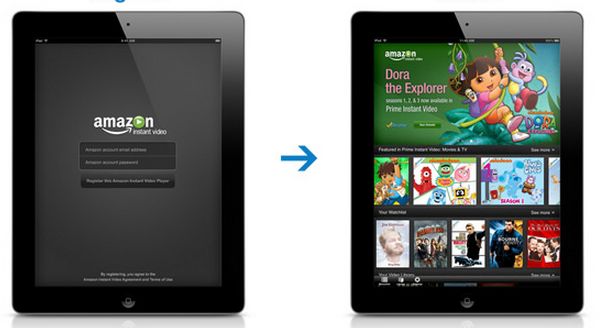
Amazon Instant Video apes Apple, releases app for iPad
Amazon Instant Video, the little video service that could, has now moved into Apple territory. Starting August 1st, Amazon will be releasing an iOS iPad app for its Amazon Instant video service. The new app allows iPad users who are also Amazon Prime account members to access the 20,000+ title collection of videos available to them.
The new iPad app also allows viewing of Amazing Instant Videos not in the "free" Amazon Prime video section as well. The Amazon Instant Video App for iPad also offers access to "Your Watchlist," a list of all the movies and TV episodes Amazon members want to watch in the future, regardless of if they own the video or not. Also, the app provides access to a "Your Video Library" feature that gives iPad customers access to their previous purchases and rentals from Amazon Instant Video. Another nice feature is the option to either watch over a Wi-Fi connection or download the video for offline viewing mode.

Amazon Cloud Player matches iTunes
Amazon on Tuesday announced major updates to its Cloud Player music service that will equal and in some ways surpass Apple's iTunes Match service. Like iTunes Match, the new Amazon Cloud player service offers entire personal library cloud hosting and scan and match your entire collection of music, upgrading tunes to at least 256kbps MP3 format. All songs already in the Amazon Cloud Player will also be upgraded to 256kbps version as well.
Unlike Apple iTunes Match, Amazon Cloud Player surpasses being available on more devices. Supported platforms include Kindle fire, and Android phones or tablets with the Amazon Cloud Player. iPhone and iPad will also be supported with the help of a native Amazon Cloud player app too. There will also be support for the Roku Stream player and the popular Sonos wireless home music systems, as well as the option for playback from any modern web browser. All songs from your iTunes library are supported for backup and matching, including song purchased via iTunes.
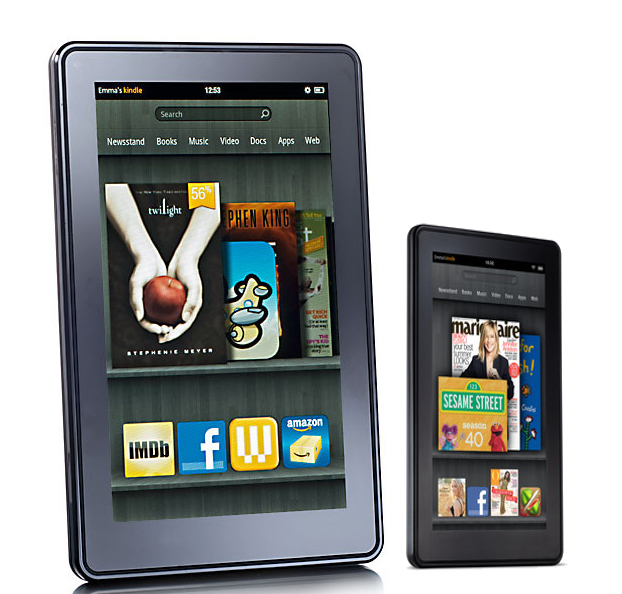
An Amazon Smartphone could be the biggest loss leader of all
Following up on reports from the fourth quarter of 2011, Bloomberg on Friday cited anonymous sources that said Amazon is working on its own Smartphone in conjunction with noted Chinese device manufacturer Foxconn International Holdings. Additionally, the report pointed out that Amazon is also on the market to buy more wireless patents, highlighted by the fact that the company recently hired a new general manager for patent acquisitions.
Contemporaneously with the Bloomberg report, approximately a dozen new job listings at Amazon popped up today for mobile software engineers that can support "existing Amazon technologies and [build] support for next-generation technologies."

Google takes on Amazon with Compute Engine cloud service
Google has Amazon in its sights. The Mountain View, California company has announced Google Compute Engine, its answer to Amazon's Elastic Compute (EC2) service. While the company currently only offers its cloud platform in limited preview, it is likely wider availability will come in short order, likely later this year.
Google will provide customers with virtual machines in 1,2,4, and 8 core-configurations running Linux. Each virtual machine will come with 3.75GB of RAM per virtual core, and storage is provided through Google's new persistent block device, or its newly announced Google Cloud Storage product.
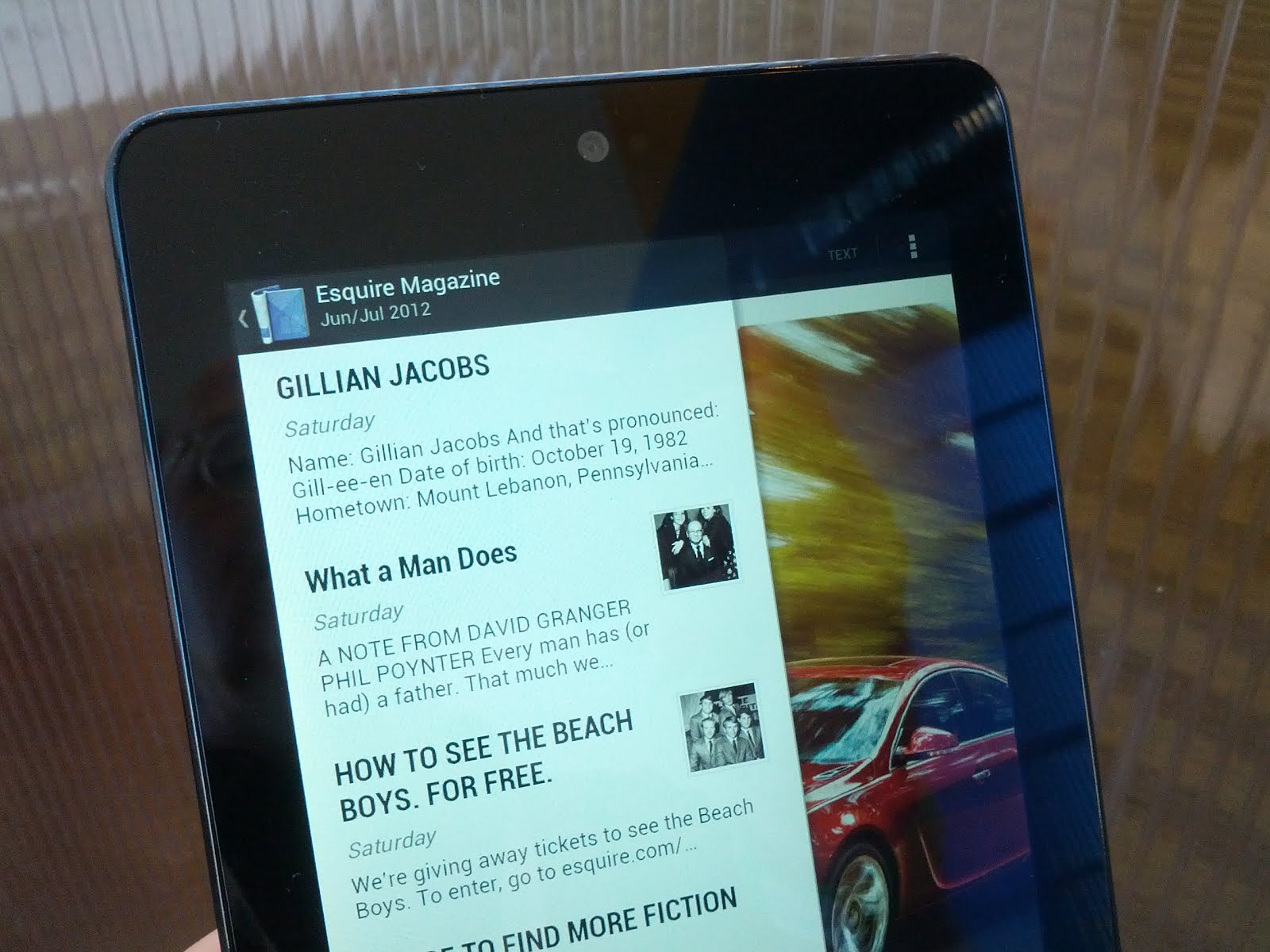
Meet Google Nexus 7, Kindle Killer
I told you so, in April. Contrary to pundits at the time viewing Google's tablet as an iPad competitor, I saw something else: Google isn't gunning for Apple but Amazon. After getting my hands on the tablet this evening, and comparing the experience using my wife's Kindle Fire, there is no doubt. Google will probably save Android from Amazon, but the end cost may be greater gains for iPad.
By just about every measure -- the exception being buying tens of thousands of retail goods -- using Nexus 7 feels like Kindle Fire, only better in every way. Significantly, the experience is different from using Google Nexus smartphones or other Android tablets. That's because Google Play is so visible. I can't say if that's a function of Android 4.1 Jellybean or how Google has set up the tablet. But content pushes to the forefront, like Kindle Fire, and much of it is similar.
